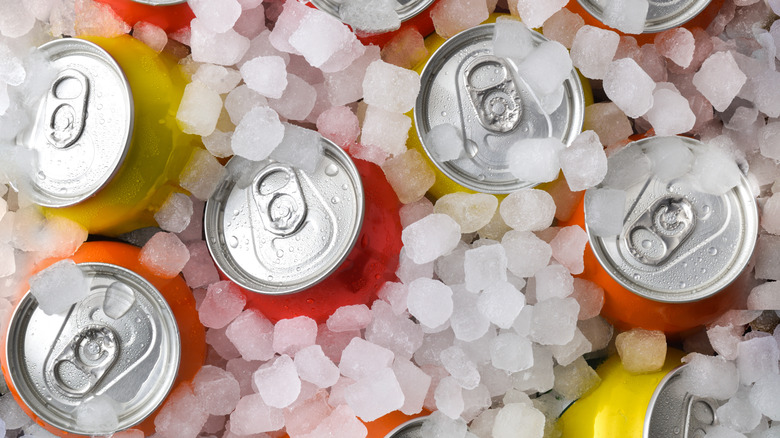These US Cities Penalize Your Sweet Tooth With A Soda Tax
While Hawaii might be the state that consumes the most soda, pretty much everyone enjoys a soft drink occasionally. However, the consumption of sugary beverages is a subject of policy discussion. Policymakers have introduced a soda tax, which is a surcharge applied to beverages sweetened with sugar. This tax is designed to adjust consumer behavior by increasing the cost of these products. The stated purpose of such a tax is to address various public health issues — specifically, conditions such as obesity, diabetes, and cardiovascular disease — that are associated with the consumption of sugary drinks, and to potentially reduce the associated financial burden on public health systems.
According to the Tax Policy Center, several cities do have soda taxes in place. With a tax of 2 cents per ounce on sugary drinks, Boulder, Colorado, has the highest soda tax in the country. This is followed by Seattle, with 1.75 cents per ounce; Philadelphia, with 1.5 cents per ounce; and the following four Californian cities: Berkeley, Oakland, Albany, and San Francisco, which each impose a tax of 1 cent per ounce. These taxes add an additional cost of between 67 cents and $1.30 (per NPR).
These policies do seem to have an effect on sugary drink consumption. According to a 2023 study published by PLOS Medicine, in Oakland the purchases of sugar-sweetened beverages dropped by 26.8% between 2017 and 2019. Research published in the American Heart Association's journal Circulation also found that those most positively impacted by the health benefits of these taxes are young adults, Black and Hispanic Americans, and lower-income Americans. The modeling study projected that implementing a national per-liter tax would prevent over 850,000 cases of cardiovascular disease.
The history of soda taxes
Over 100 years ago, Congress passed its own soda tax, but this was not rooted in public-health concerns and was instead intended to raise funds for World War I. Over time, the concept of health taxes has gained traction. The federal government already imposes taxes on both alcohol and tobacco, while individual states set their own excise taxes — though some states, like New Hampshire, choose to forgo additional taxation on booze altogether.
The idea of a contemporary soda tax has been building momentum for decades. In 2008, former New York governor David Paterson proposed an 18% "obesity tax" on sugar-based drinks. While this did not gain traction, in 2014 Berkeley, California, became the first U.S. city to pass a soda tax — which followed numerous failed attempts to introduce this style of tax in various U.S. states and cities. Following Berkeley's historic success, several other U.S. cities quickly followed suit and imposed their own versions of a soda tax.
While both the public health and social benefits of soda taxes have been widely researched, these taxes have faced significant opposition at both the state and federal levels. Soft drink giants like Coca-Cola have spent millions campaigning against such measures, including funding research disputing the benefits of soda taxes and contributing to inaccurate myths about soda. As a result of this lobbying, several states have passed laws prohibiting local governments from enacting taxes on sugar-sweetened beverages, including California and Washington, which already have soda taxes in certain cities.


